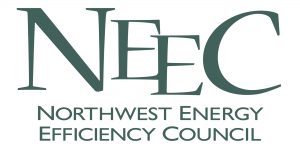The Smart Buildings Center is excited to announce the fourth and final session for Virtual Smart Buildings Week on Friday, September 18th. This session on “Creating Intelligent Spaces” will close out the week of free lunch-hour sessions covering engaging topics including Using Data and Analytics to Improve Performance, Grid Enabled Efficient Buildings, and Achieving Persistent Operational Performance. These one-hour sessions each qualify for 1 Building Operator Certification (BOC) credential maintenance point and 0.10 IACET CEUs towards the renewal of industry certifications, certificates and licenses including but not limited to AIA, PE, LEED, IFMA, ASHRAE, and AEE. View the full Virtual Smart Buildings Week schedule and session descriptions here: https://www.smartbuildingscenter.org/smart-buildings-week/
Smart Buildings: Creating Intelligent Spaces
September 18th, 2020, 12:00 – 1:00 PM
The Internet of Things (IoT) is transforming the world, including the built environment. This transformation is already underway leading to improved organizational productivity, better space utilization, and more efficient and healthier buildings. To make this transformation successful, it’s important to both understand the technology and practices as well as the cross-organizational nature of adopting smart projects. Microsoft has keen insight here based on its own adoption of smart technologies at their buildings as well as through close working relationships with its partner ecosystem. Microsoft will share a number of key considerations that can help building owners and operators make a successful transformation to buildings that are more agile, flexible, efficient, and productive.

Speaker: Spyros Sakellariadis, Microsoft
Spyros is an IT professional focused on defining and developing innovative solutions that impact the way people do things. He’s currently working on smart buildings and places around facilities operations, occupancy, security, and all things sustainability – carbon/energy, water, and waste management – leveraging technologies like IoT, real time analytics, big data, field service/workforce management, and frontline worker support.
Spyros holds degrees from the University of Oxford (Physics and Philosophy) and Pittsburgh (History and Philosophy of Science), and has worked in many fields, including defense contracting, export trading, leasing, and AIDS research. He started a computer company aeons ago, sold it to Wang, went into Internet application hosting before it was a ‘thing’, and finally saw the light and joined Microsoft in 2003. Spyros has published multiple articles in trade journals, and holds several patents.

